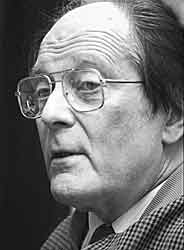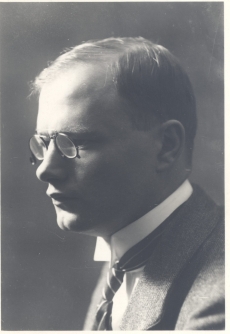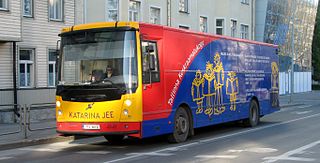
Jaan Kross was an Estonian writer. He won the 1995 International Nonino Prize in Italy.

Valga County is a first-level administrative unit and one of 15 counties of Estonia. It comprises the former area of Valga District. The present-day county was created on 1 January 1990. The capital and largest town of Valga County is Valga, followed by Tõrva and Otepää. It is situated in the southern part of the country and borders Põlva and Võru County to the east, Latvia to the south and west, and Viljandi and Tartu County to the north. 27,650 people live in Valga County as of 2022.
Estonian literature is literature written in the Estonian language The domination of Estonia after the Northern Crusades, from the 13th century to 1918 by Germany, Sweden, and Russia resulted in few early written literary works in the Estonian language. The oldest records of written Estonian date from the 13th century. Originates Livoniae in Chronicle of Henry of Livonia contains Estonian place names, words and fragments of sentences. The Liber Census Daniae (1241) contains Estonian place and family names. The earliest extant samples of connected Estonian are the so-called Kullamaa prayers dating from 1524 and 1528. The first known printed book is a bilingual German-Estonian translation of the Lutheran catechism by S.Wanradt and J. Koell (1535). For the use of priests an Estonian grammar was printed in German in 1637. The New Testament was translated into southern Estonian in 1686. The two dialects were united by Anton Thor Helle in a form based on northern Estonian. Writings in Estonian became more significant in the 19th century during the Estophile Enlightenment Period (1750–1840).

Priit Võigemast is an Estonian film, television and stage actor. Between 2002 and 2007 he has performed in the Ugala, Tallinna Linnateater and other theatres. He is probably best known for the role of Henn Ahas in the 2002 war drama Names in Marble. He was married to actress Evelin Võigemast.

August Gailit was an Estonian writer.
Toomas is an Estonian masculine given name, a cognate of Thomas.
Enn Klooren was an Estonian actor.

The Katarina Jee Mobile Library is a Tallinn Central Library bus or Bookmobile operating in Tallinn, Estonia, the first and currently only Bookmobile operating in Estonia. The bus name Katarina Jee refers to a character from the Estonian author August Gailit's novel Toomas Nipernaadi.
Margus Oopkaup is an Estonian stage, film and television actor and playwright who was engaged at the Endla Theatre from 1982 to 2000. In 1983, he was awarded the Best Young Actor award for his performance in the film Nipernaadi.

Ain Lutsepp is an Estonian actor and politician.
Raine Loo was an Estonian stage, television and film actress.
Laine Mesikäpp was an Estonian film, radio and stage actress, singer and prolific collector and cataloguer of Estonian folk music.
Viire Valdma is an Estonian stage, television and film actress.

Rita Raave is an Estonian stage, television and film actress, and painter.
Aino Talvi was an Estonian stage, film, and radio actress and singer whose career spanned over sixty years.
Jaan Rekkor is an Estonian stage, film and television actor.
Paul Poom is a former Estonian stage, film, television, and radio actor whose career began in the late 1970s and ended in 1993 after an assault left him permanently disabled.
Leida Rammo was an Estonian stage, radio, television, and film actress and theatre director whose career spanned over seven decades.
Aire Koop is an Estonian stage, film, and television actress whose career began in the late 1970s.
Rein Aedma is an Estonian film actor who made his screen debut as a teenager and is possibly best recalled for his role as Jaan Imelik in three film adaptations of novels penned by author Oskar Luts: Kevade (1969), Suvi (1976), and Sügis (1990), and a 2020 follow-up film Talve.







